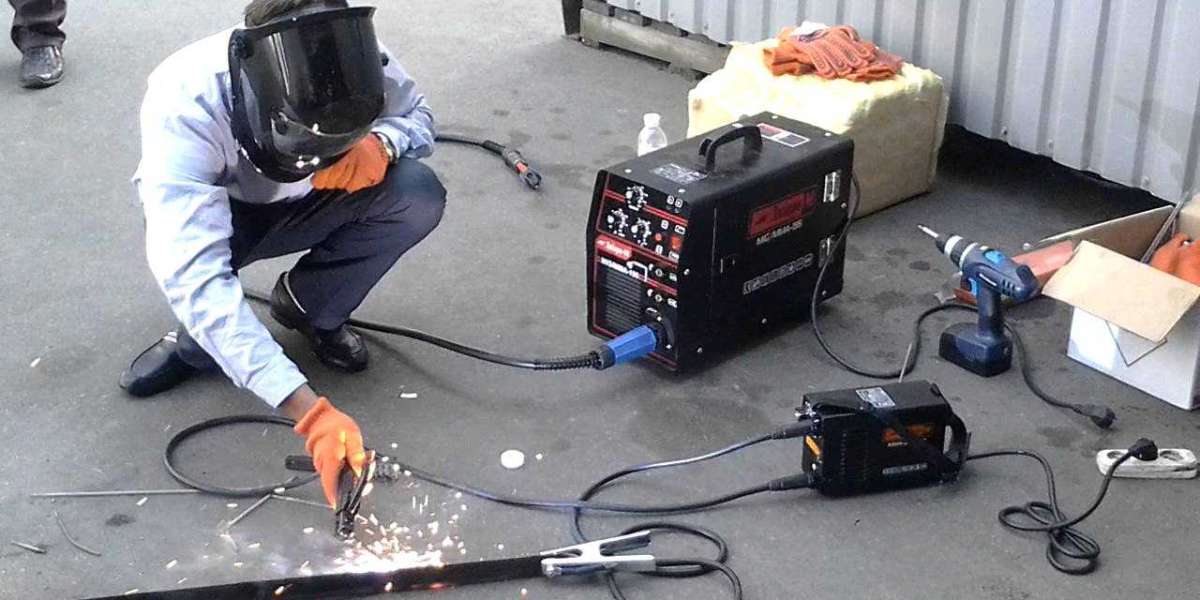RMI Education and Skills Strengthening Project
The Government of the Republic of Marshall Islands has received funding from the World Bank for the Education and Skills Strengthening Project (ESSP) expense. It means to apply part of the earnings for speaking with services.
The consulting services ("the Services") will assist the Project Manager and the RMI National Training Council in carrying out the World Bank-funded project successfully.
The project will concentrate on supporting the Project Implementation Unit (PIU) in producing a framework for Recognition of Prior Learning (RPL) for TVET, targeted at assisting the College of the Marshall Islands and the RMI National Training Council examine and improve the skills of employees through certified college certification.
The in-depth Terms of Reference (TOR) for the project are shown in the attached Terms of Reference (ToR).
The National Training Council now invites qualified people ("Consultants") to suggest their interest in offering the Services. Interested Consultants must offer details showing that they have the needed credentials and appropriate experience to perform the Services (attach a Cover Letter of no greater than four (4) pages dealing with the necessary experience and qualification requirements curriculum vitae with a description of experience in comparable projects, comparable conditions, and so on). Companies' personnel might reveal interest through the using company for the task. In such a scenario, only the experience and certifications of individuals shall be thought about in the choice procedure. The criteria for electing the Consultant are: A.
Mandatory Qualifications and Experience Master's degree in education, training
, management, or an associated field. Minimum of 5-10 years of experience working in TVET System. Curriculum Design and Systems.
Possess 2-5 years' experience creating and
carrying out RPL. structures, policies, and treatments. A sample of previous work will be needed as proof of previous experience. Outstanding interaction, training, and facilitation
abilities. Experience with dealing with diverse stakeholders, including government. firms, TVET organizations, companies, and learners in the Pacific. B. Desired Qualifications and Experience Capability to deal sensitively in a multicultural
environment and develop efficient team relationships with customers and pertinent stakeholders. The attention of interested Consultants (consisting of companies )is drawn to paragraphs 3.14, 3.16 and 3.17 of the World Bank's"
Procurement Regulations for IPF Borrowers "July 2016 modified November 2020" Procurement Regulations ", stating the World Bank's policy on conflict of interest. Further info can be gotten at the address below during workplace hours, 0900 to 1700 local time. Expressions of interest must be
provided in a written kind to the address listed below (personally or by e-mail )by 5:00 pm, 23rd December 2024.
The subject line needs to state:"National Training Council Strategic Plan Consultant -full name of the candidate". Julius Lucky Director National Training Council!.?.!ntcdr@ntcinfo.org:Phone: 692 625-4521 Empowering Community Champions for Sustainable Development in RMI Gender Equality, Climate Resilience and Water Safety Training Majuro,
Republic of the Marshall Islands: The 4th
Women and Youth Training for
Gender Equality, Climate Change, Disaster Risk Reduction and Water Safety Management has just recently happened at the University of the South Pacific's campus in Majuro, the Republic of the Marshall Islands(RMI ). This important training was arranged by the United Nations Development Programme( UNDP )Pacific Office through the Addressing Climate Vulnerability in the Water Sector(ACWA) project. The week-long capacity-building training intended to empower ladies and youth with the understanding and practices required for climate-resilient water safety management in the
Republic of the Marshall Islands(rmi national training council ). This training reinforces a dedication to improving RMI's water security and neighborhood strength versus climate change impacts, particularly women
and youth, ensuring that no one is left. The training invited individuals from all 24 atolls and featured resource speakers from federal government agencies, non-governmental companies, and global development partners from the rmi national training council Environmental Protection Authority, Climate Change Directorate, Office of the Chief Secretary, Ministry of Culture and Internal Affairs, National Disaster Management Office, Women United Together Marshall Islands, rmi national training council Human Trafficking Task Force, Waan Aelõñ in Majel, Jo-Jikum, and the International Organization for Migration. In her opening remarks, Secretary for the Ministry of Culture and Internal Affairs, Brenda Alik, underscored the significance of cumulative action in constructing a climate-resilient country."It is our duty to come together and collaborate. As we face the obstacles presented by climate modification, understanding its influence on our water resources is important for enhancing the wellness of neighborhoods across the Marshall Islands,"she stated.
rmi national training council Environmental Protection Authority General Manager Moriana Philip highlighted in her speech the vital role of ladies and youth in resolving climate-related challenges."This workshop unites us from numerous neighborhoods to deal with the pressing problems we face today, including climate-related difficulties, especially on our water resources."We want to highlight the essential function of women and youth in this task as your involvement is instrumental to its success and beyond, "she said.
The very first day of the workshop covered crucial problems related to gender equality, human rights, and public health within the Marshall Islands. It included discussions on gender equality and mainstreaming, concentrating on the effects of environment change on water security and the disproportionate results on vulnerable groups. The significance of integrating gender equality and social addition into all project aspects was also discussed. Human rights and human trafficking were tackled, worrying the requirement for thorough protection of vulnerable populations
throughout emergencies. Additionally, the workshop resolved gender-based violence, highlighting the different forms that can arise in catastrophe situations, such as domestic violence and sexual coercion. The program concluded with a focus on sanitation and hygiene and their essential role in health, livelihoods, school participation, self-respect, and structure resistant communities. ACWA Project Manager Koji Kumamaru revealed his appreciation to all individuals
, highlighting the importance of their contributions to their neighborhoods."Women and youth are key to the success of the ACWA task. More notably, you are the champions and future leaders who will return to your communities to empower others,"he said. Throughout the workshop, participants went to Rongrong Island and took a look at the 15,000-gallon Flatpack Modular water tank installed at the Rongrong High School Boys Dormitory as part of the ACWA project. The installation is an essential component of the task, matched by support from Australia
's Department of Foreign Affairs and Trade. The see acted as an important firsthand experience of the favorable impact of the ACWA project on the community and its
water resources. Marie Naisher from Jabat Island revealed her appreciation for the opportunity to join the workshop and explained her desire to be part of the project when it reaches Jabat.
"This was my first time taking part in such training, and I learned a lot from the visitor speakers, group activities, and the site see. I now understand the significance of tidy water and how to sanitize it. I'm excited about the ACWA project concerning Jabat and prepared to assist when it arrives,"she said. Don Kobney, an ACWA website organizer from Santo, Kwajalein, likewise shared his enjoyment."The workshop and website see enhanced my confidence and understanding of the water tank setup.
Seeing the 15,000-gallon flatpack modular water tank firsthand provided me a clear understanding of the system, and I'm anticipating sharing this understanding with my community, "he said. By the workshop's end, individuals were better geared up to comprehend climate change and its regional impacts, drive adaptation and mitigation efforts, especially in water security, and utilize brand-new resources to affect their communities favorably. ACWA is made possible thanks to the assistance of the Green Climate
Fund, with the job co-financed by the Government of the Republic of the Marshall Islands
. The Marshall Islands: Skills Training and Vocational Education Project Evaluates the efficiency of the job and highlights lessons. Provides inputs to 2 broader examinations- the regional assessment of ADB support for the Pacific and the special assessment study on Millennium Development Goals. The low instructional achievement and lack of Marshallese skilled workers were largely due to the low quality of fundamental education, absence of access to education in the external islands, and weak points in skills training and the vocational and technical education system.
These supported an economy marked by high unemployment because of constrained private sector development and government downsizing. Joblessness was particularly high amongst the youth and ladies in the external islands. Appropriate local competent personnel for existing job vacancies
were not available, thus the importation of appropriately skilled foreign employees. Hence, there was an inequality between readily available jobs and skills of the Marshallese labour force. These conditions provided the effort for the Government
of the Marshall Islands to prioritize technical and vocational education training reforms. In 2000, ADB approved a loan for $9.1 million to improve abilities training to offer well-trained workers needed for sustained financial and social advancement. This was to be accomplished through an integrated national skills training system. The job included 4 components: advancement of a profession awareness program, abilities training improvement, enhanced skills training opportunities for ladies and youth, and institutional conditioning. The anticipated result was increased income-generating opportunities and employment for students, especially ladies and youth in the outer islands. In general, the task was ranked not successful. Limited progress was achieved in making the task responsive to the requirements of its beneficiaries and private-sector employers. The long-standing weak point of bad numeracy and literacy competencies
amongst public elementary and secondary school graduates and dropouts entering college or participating in voc-tech education could be partly credited to the poor quality of fundamental education. The task was supply-driven and could not establish a strong linkage with economic sector requirements or align its activities with the requirements of the labour market. The status of the technical and vocational education training system has remained fundamentally the very same after task completion. The research study advanced that ADB could encourage the Government of the Marshall Islands, through consultation and policy dialogue, to follow through on the government's
commitment to developing a dedicated labour information system to connect technical and employment education training program offerings with industry need. Although the task set up a labour market details system, in the lack of in-house staff ability at the National Training Council, it was not fully functional.








